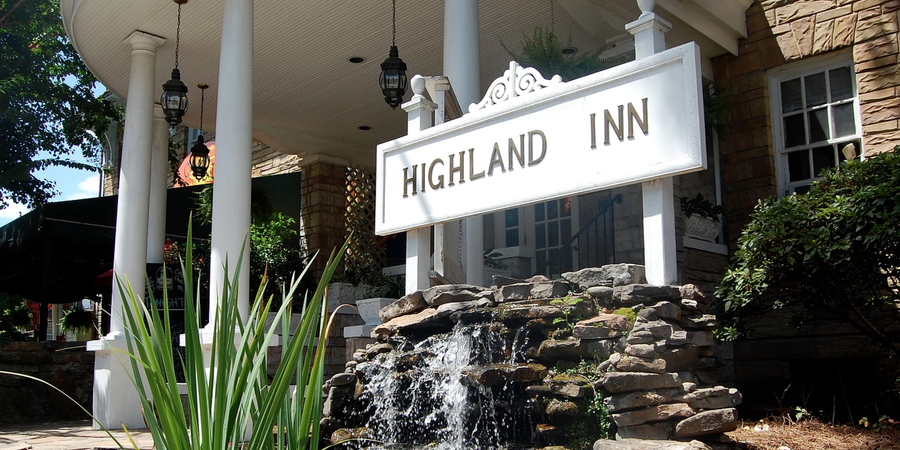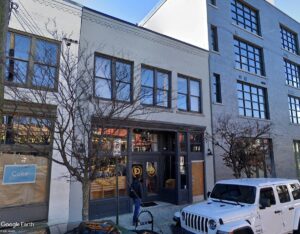Atlanta’s Zoning Review Board unanimously voted to recommend approval of the Poncey-Highland Historic District after over an hour of deliberation Thursday, August 13. Members of the Poncey-Highland Neighborhood Association initially voted to create the historic district in March.
Sign up now to get our Daily Breaking News Alerts
Among the advocates for the historic district were executive director of the Urban Design Commision Doug Young and TSW principal Caleb Racicot, along with members of the neighborhood association.
“Our big picture goal was to give the Poncey-Highland master plan regulatory teeth, while our neighborhood still had a sense of place to save,” Poncey-Highland Neighborhood Association’s land use committe chair Lisa Malaney said during the deliberation which was digitally broadcasted Thursday. “[The historic district is] a creative and flexible response by the city to the problems Poncey-Highland was trying to address. It will guide and manage development in our neighborhood in a way that honors its history, embraces its future potential, and it’s fair and predictable for everyone.”
Among the participants against the historic district were Thomas Carmichael Jr., co-owner of the North High Ridge Apartments on North Avenue and The Highland Inn & Ballroom, and his lawyer, David Metzger of Williams Teusink. Carmichael, who filed a demolition permit for the nearly century-old Highland Inn in mid-July of this year and outlined tentative plans to build a mixed-use development in its place, argued that the vote for the historic district was exclusionary.
“I feel like we didn’t get a vote,” Carmichael said. “We were not allowed to vote in the process. Renters originally were allowed to vote and then they weren’t, but I just wanted to bring that up. It feels a bit one-sided, I guess.”
Only residents, owners and tenants, were allowed to vote. Though non-resident property owners, business owners, commercial property owners, and multifamily property owners weren’t allowed to vote in the election, Malaney said they were invited to join the ordinance’s drafting process.
“So while our bylaws do exclude them from the vote, they were able to participate in the process,” Malaney said. “There are about 50 commercial property owners in the neighborhood, give or take. So, even if they voted, and they all voted against the proposed district, it still would have passed based on the support.”
A total of 358 residents voted in the election and 259 voted in favor of a historic district while 88 voted against. Eleven of the votes, a mixture of support, oppose and no option votes, were determined to be invalid.
Metzger also argued that with the pandemic hitting renters and small businesses, “now is not the time to put a whole new set of regulations on every property in this neighborhood.” Metzger recommended that the board approve a 90-day deferral for the ordinance.
Protective regulations around proposed historic districts allow for an interim control process in which the terms of the historic district plan are in effect. Emergency executive orders from both the governor and mayor extended the period to September 20.
“If the application were deferred, then we would have concerns about the interim control period,” Young said during the meeting. “So we would recommend that the board take action tonight.”
Now that the ordinance has made it past the Zoning Review Board, the Poncey-Highland Historic District faces the Atlanta City Council. If passed, it will be sent to Mayor Keisha Lance Bottoms for approval.
A previous version of this article incorrectly reported the results of the election as 259 for, 99 against. The actual tally was 259 for, 88 against, with 11 invalid votes, either casted past the deadline, incomplete, not signed by a board mewmber, or cast by someone ineligible for voting.






23 Responses
Fingers crossed!!!
“Not in my backyard!” Scream the few.
Why does the city allow only a portion of current residents Of the area enact restrictive zoning to the detriment of future residences and renters. This is to protect current property values of owners and will negatively distort the housing market driving prices up and discouraging density and development, driving up prices in the long run.
NIMBY-ism has no place in Atlanta as we look to failed examples in the Bay Area and other cities. We should be up-zoning and incentivizing the development of new housing and density creating more mixed use communities.
Very disappointed in this outcome.
– Renter in Poncey Highlands
So a transient renter feels the need to tell actual (historic) property owners how to plan their
neighborhood for the future. Got it…
If you don’t like it, you can move yourself to one of the many up-zoned, new housing, mixed use
developments anywhere in the city. That’s one of the perks of being a renter.
The historic zoning that’s been proposed for Poncey-Highland is very watered down compared to a neighborhood like Inman Park.
So only current property owners can belong to a neighborhood? Renters are not part of and should be excluded from the community? Got it.
I didn’t say anything like that.
So no, you don’t got it.
“ So a separate homeowner feels the need to tell actual (historic) property owners of the highland inn how to plan their future. Got it…”
If it was “a separate homeowner,” you might have a point.
However it was 259 out of 358 residents that voted for historic designation.
You must’ve gone back for seconds and thirds when Carmichael was passing out the Kool-Aid.
If you owned a building that was falling down under it’s own weight you would most likely not want to see a Historic Group enacted that may not care about your burdened position. This is how people are bankrupt. The building needs to be replaced with a newer, tenant friendly- ada compliant, architecturally pleasing mixed use that allows local businesses to thrive and that allows nice affordable apartments above it!
All of this can still happen while still preserving Poncey-Highland’s character.
If the building is falling down, it should have been condemned a long time ago. There’s still a business running out of it.
There have been much larger & broken down buildings in Atlanta that have been rehabbed.
Why would this property owner allow his building to be “falling down?”
I call BS on that. It’s not the first time that some property owner has let an
historic building fall down…
While I love the Highland Inn and would be sad to see it go… you’re completely right. Long-term we’ve gotta get a handle on NIMBYism, it’s poisoning the real estate market and driving in-affordability.
Historic preservation CAN be done right. This obviously isn’t an example of that… jumping into action to block a development once it’s already on the table. The choice about whether to and how to protect properties should be made in advance and should take account of the very real trade-offs in density and affordability.
The historic zoning process was started way before anybody knew he was going to tear down the Highland Inn– it’s not just now being addressed to block a new development.
Correct. This has been in the works for well over a year.
Have you read the regulations? This is a YIMBY approach. FAR has been substantially increased on Ponce, North Highland and the BeltLine. No one has lost. Many have gained. Property owners and developers in the mixed use subareas can choose between commercial, residential, or a mix of uses depending on demand. Existing affordable housing is preserved. Read the regulations before slamming them!
I’m not sure Carmichael wants to own “existing affordable housing” though.
Even though he conned his tenants into believing that the historic zoning regulation would raise rents.
I live in Inman Park, and our historic regulations are much more stringent than the ones proposed for P-H.
We made it somewhat work. Still a lot of ugly developments on the perimeter of the neighborhood…
With all the brainiac architects and developers here in the city, why couldn’t The Highland Inn be saved and incorporated into a broader and more dense development, similar to that of Portman’s development surrounding the H M Patterson Funeral Home on Spring St? May sound too simplistic, but…
Well there’s not that much open land around the Highland Inn. There is that parking lot beside it though.
I wouldn’t mind a visually appropriate building going in there– but if Carmichael doesn’t own it, he can’t profit from it, which is what it’s all about for him.
The neighborhood should let Carmichael tear down North High Ridge Apartments, and let him put up whatever mixed use, cookie cutter nonsense, that he wants (within reason of course).
And all you tenants paying cheap rent there, can move back in when the rents have doubled, and the retail spaces are vacant.
Carmichael can build whatever he wants in Alpharetta or Smyrna or any number of suburban neighborhoods around Atlanta. Poncey Highlands wants to stay historic with a different vibe than newer neighborhoods. Leave it alone.
Thank you!
Amen.
There is way more to this story than anyone actually knows or wants to know!
This building needs to be replaced.
It is not doing anyone any good.
If allowed, i will say more.. Waiting on approval to comment…
A Chandlee and Sons Build– Coming Soon?